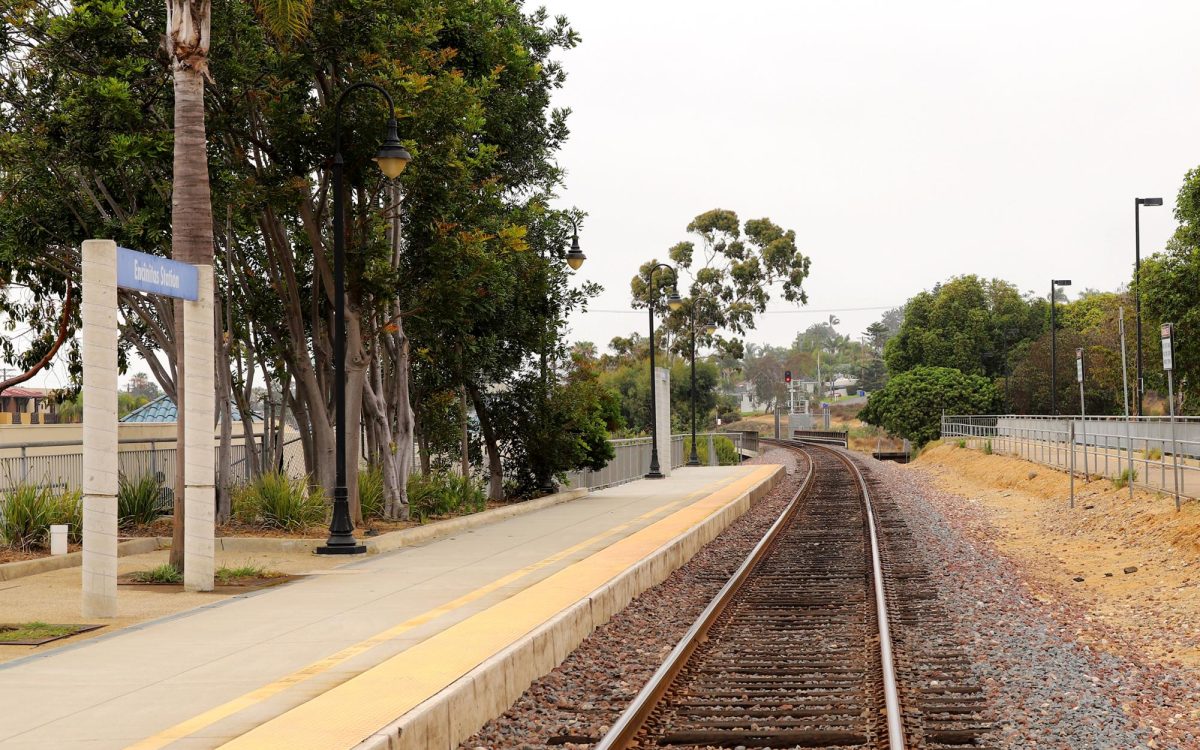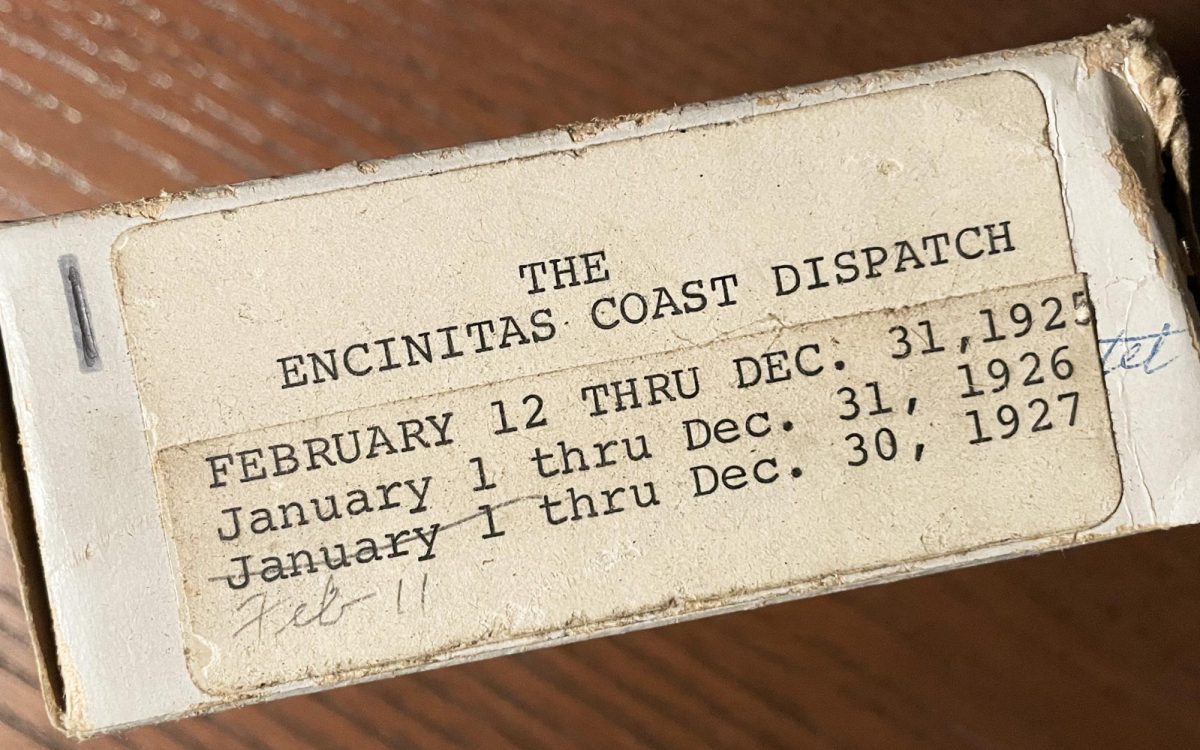I can’t recall if she went by “Lizard” or “Lizzard.”
It doesn’t really matter at the moment. What matters is what I recall about Elizabeth, a student colleague who was a year ahead of me at San Dieguito High School when we were on The Mustang student newspaper staff.
I recall her having a dry sense of humor and a no-nonsense approach to doing things. I remember snippets like how she signed her nickname on a news staff planning document, something I believe I still have in storage somewhere among my old high school paperwork. Or the time we had an end-of-semester gathering, and the dinner host’s pug jumped to her lap at the dining room table with a loud snort, and her reaction — “Whoa!”
Whenever there’s an incident involving a train and the death of a pedestrian on our local tracks, Elizabeth comes to mind. She is among those victims, and it was a heavy shock to those of us who knew her when the news broke in 1990.
 Elizabeth’s death was a long time ago, but 2024 has been a reminder of the gravity of such incidents, no matter the circumstance or motive. At the time of her death, such incidents seemed rare.
Elizabeth’s death was a long time ago, but 2024 has been a reminder of the gravity of such incidents, no matter the circumstance or motive. At the time of her death, such incidents seemed rare.
Since the start of this year, however, there have been 10 deaths on our local tracks. Every time the North Coast Current has published any of those incidents, social media commenters have presented theories as to why they happened.
It must be suicide, for example. In fact, the Current has drawn criticism from some of those commenters for not jumping to that conclusion automatically.
If not sensational, the reactions have also been callous, frankly.
“Darwinism” has been among the public reactions to the North Coast Current’s broader story on this issue, published on April 8.
These incidents are tragic, whether they are the result of suicide or accident. In Elizabeth’s case, according to Los Angeles Times reporting in 1990, the event was indeed an accident.
Law enforcement doesn’t always comment on whether train collisions with pedestrians are suicide. News outlets generally stick to the same policy.
What stands out to me, and why the Current chose to cover the topic, is the alarming increase in the number of these incidents.
Freelance writer Patrick Doyle found that the 10 collisions in the first three months of 2024 nearly matched the number for all of 2023 — 12 for the entire year.
The trend appears to be nationwide, if National Safety Council figures over the past couple of years are any indication. According to the NSC, railroad-related deaths in general were 954 in 2022, an 11% increase from 2021’s total of 859, and the highest number overall since 2007.
Of the 2022 figures, fatalities not involving rail crossing-highway incidents — what the NSC referred to as trespassers — increased 9%. The NSC’s numbers did not include suicides.
When it comes to the local numbers, the people involved appear to be in three categories: homeless, suicides, or those who didn’t understand just how fast a train could gain on them, even at slower speeds.
San Diego County Sheriff’s Transit Enforcement Unit Sgt. Jason King had this to say about trains and pedestrians’ perceptions of them.
“They can’t drive out of the way, they can’t swerve to miss you. People don’t realize, I think, how dangerous they are,” King said in writer Patrick Doyle’s story. “These trains move quietly. If you’re from the Encinitas area, you probably have noticed a huge change in how these trains are, from the older ones that were fairly loud … but now with these new engines that have come out … they’re a lot quieter than they used to be.”
Family privacy concerns and the fluidity of homeless population numbers can make determining the exact reasons for this year’s increase tougher to ascertain in the short term. What our communities don’t need are loose theories and crass comments about the victims.
In the meantime, there should be a renewed focus on prevention methods to keep the numbers down and research to find concrete reasons why such rail deaths are on the rise.
Individuals in immediate distress, and those who are concerned about them, can call the San Diego Access and Crisis Line for assistance 24 hours a day, seven days a week: 1-888-724-7240.
Roman S. Koenig is editor and publisher of the North Coast Current.
Columns are the opinions of the writer and do not necessarily reflect the opinions of North Coast Current ownership. Comment below or submit letters to the editor at letters[at]northcoastcurrent.com.







